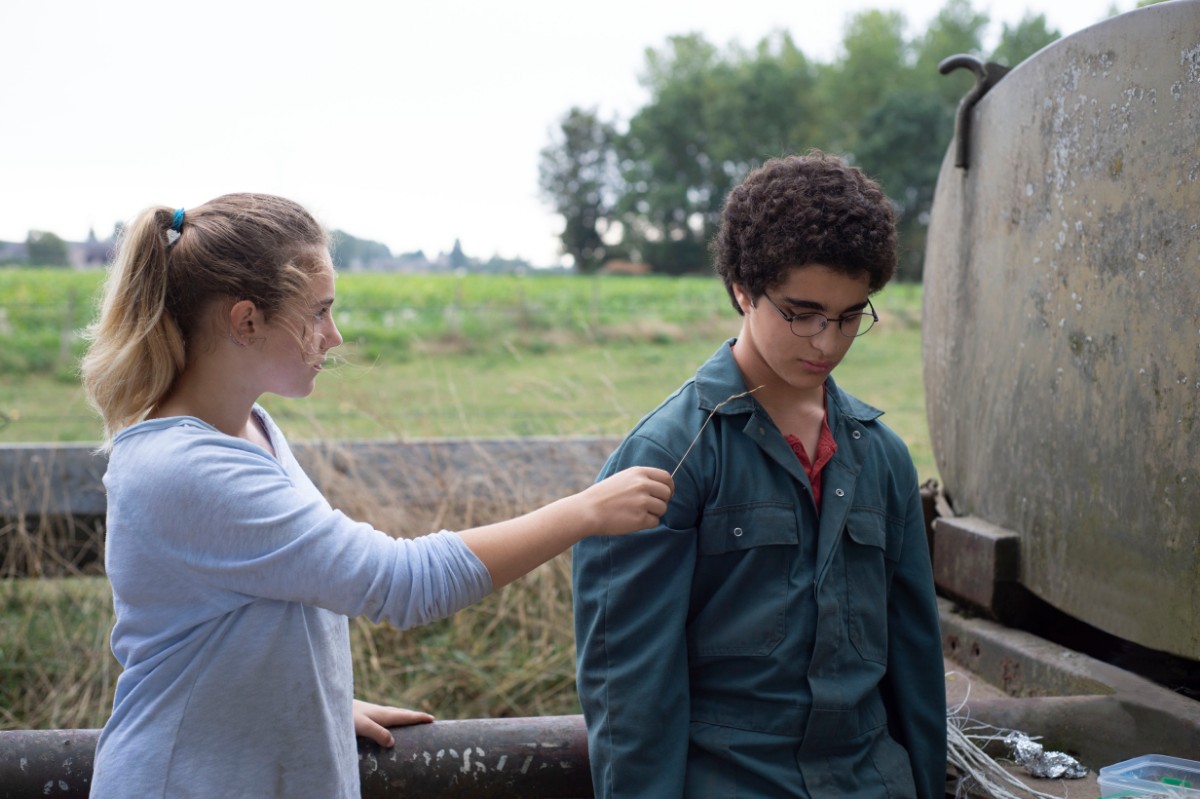The style of filmmakers Jean-Pierre and Luc Dardenne has shifted over the years, moving further away from the shattering realism that earned them Palme d’Ors for “Rosetta” and “The Child.” Fourteen years after the latter win, and in the running for their third Palme at the Cannes Film Festival, the Dardenne brothers turn their camera toward the world of Islamic fundamentalism with “Young Ahmed,” a compact, gripping return to the directors’ nonprofessional roots.
In the opening scene of “Young Ahmed,” the eponymous protagonist (Idir Ben Addi) sharply retorts, “I’m not a child.” Influenced by the sacrifice of his jihadist cousin, Ahmed devotes himself to fundamentalist Islamic values and obsesses over the notion of purity. He finds himself in conflict with his concerned mother (Claire Bodson) and teacher Inès (Myriem Akheddiou), a nurturing presence in the local Muslim community. Influenced by a misogynistic, potentially violent interpretation of Islam, the teenage boy is unwilling to even shake a woman’s hand.
READ MORE: 2019 Cannes Film Festival: The 21 Most Anticipated Movies
A violent encounter finds Ahmed separated from his concerned mother and sent to a detention center. From here, “Young Ahmed” plays out like a modern take on the final act of “The 400 Blows” with a harder edge. The hope is that the intervention of a psychologist, and an encounter in the countryside, will encourage the boy to question his indoctrination. The Dardennes move quickly past the most dramatically potent events and focus on the aftermath. At a lean 84 minutes, “Young Ahmed” moves along at a steady clip, but does so without sacrificing emotional heft.
In the lead role, Ben Addi is yet another mesmerizing young discovery by the Belgian duo. He bears a fixed expression throughout; his face becomes a mask to his emotions and concealing an inner turmoil. Hints to what precisely drove Ahmed’s transformation are scarce. Don’t expect a gentle transformation in which Ahmed embraces a more nuanced interpretation of the Qu’ran—his faith runs deep. The rare instances in which the uncommonly stern boy is caught off-guard are endearing and serve as a respite from his otherwise toxic forward motion.
Taking over the cinematography duties on “Young Ahmed” is Benoît Dervaux, succeeding the Dardennes’ regular lenser Alain Marcoen. Dervaux had previously cut his teeth in various camera and crew roles on the brothers’ past few features. This continuity should be a clue that it is business as usual in terms of the film’s look and feel–there’s not much new to be said about the well-worn social realist style that the directing duo popularized over 20 years ago. With that in mind, the mise en scène is pleasingly colorful—reflective of Ahmed’s age, if perhaps not his perceived maturity. The subject and narrative trajectory of “Young Ahmed” make it a taxing watch, but the film certainly doesn’t go out of its way to look miserabilist.
The Muslim community in “Young Ahmed” is unique among the socially marginalized subjects of the Dardennes’ filmography. Certainly, the film gives a voice to a universal struggle at the heart of the diaspora, where displaced people have to balance integrating into a new society without sacrificing their culture and religious beliefs. There is an early argument between Ahmed’s teacher and the fundamentalist disciples about the shape and value of pedagogy—where and how the Arabic language and Muslim religion should be transmitted. It is telling that the story anchors itself in Inès’ classroom, which serves as an alternative to the severe rhetoric expounded by the imam in the back room of his corner store. More than anything, “Young Ahmed” is an appeal to broker a dialogue between ideologies at odds, while simultaneously acknowledging that it may not be possible.
Absent from “Young Ahmed” is the frenetic urgency that defines the directors’ greatest work, replaced here by the titular character’s unshakable tunnel vision. Ahmed is a challenging protagonist to relate to, due to his interior, influential nature. Portrayed throughout as a tragic child on the cusp of being responsible for his values, he is as resourceful and tenacious as any of the Dardennes’ other protagonists who find themselves desperate circumstances. Even after a touching, graceful dénouement indebted to the transcendental work of Robert Bresson, the film’s central question still hangs in the air: how will Ahmed reconcile his faith with his immediate reality as a citizen of Belgium? [B+]





